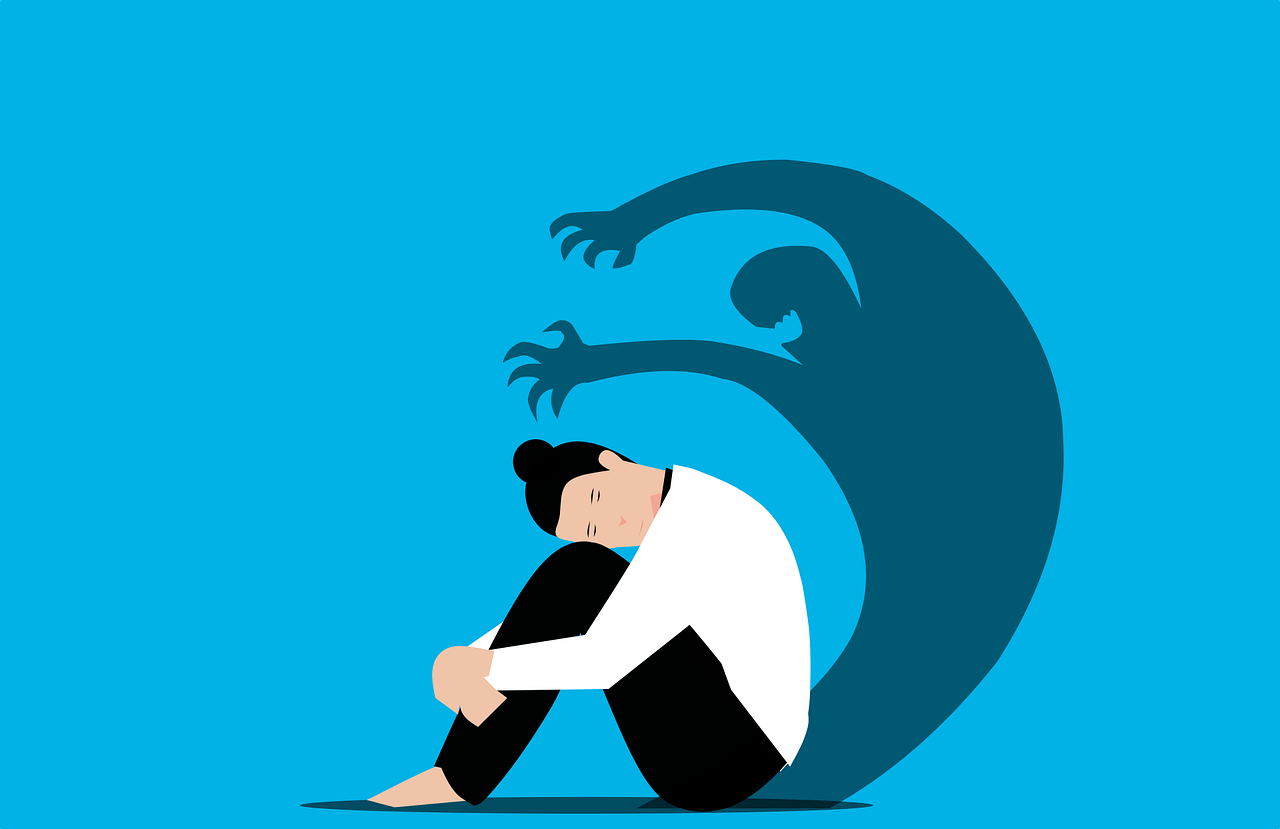In today’s fast-paced world, mental health has become a matter of great concern. It refers to a person’s emotional, psychological, and social well-being, influencing how they think, feel, and act.
Mental health affects every aspect of life, including relationships, work performance, and overall quality of life. Unfortunately, mental health disorders are prevalent, with millions of people worldwide experiencing them.
Mental health is a crucial aspect of overall well-being that affects individuals of all ages and backgrounds. However, it is often an overlooked and stigmatized topic in society. In this article, we will delve into the intricacies of mental health, explore common mental health disorders, discuss their impact on individuals and society, and shed light on the relationship between mental health and suicide.
By increasing awareness and understanding, we can work together to create a supportive environment for those struggling with mental health issues.
This blog aims to explore the importance of mental health, provide insights into the factors contributing to mental health issues, and offer guidance on promoting mental well-being and preventing suicide.
Understanding Mental Health:
Mental health is more than just the absence of mental illness; it encompasses our emotional, psychological, and social well-being. It affects how we think, feel, and act, and influences our ability to cope with stress, maintain relationships, and navigate life’s challenges. We need to prioritize mental health and recognize that everyone is susceptible to its fluctuations.
Common Mental Health Disorders:
Mental health disorders encompass a wide range of conditions that affect individuals’ thoughts, emotions, and behaviors. While there are numerous mental health disorders, some of the most common ones include:
- Depression: Depression is characterized by persistent feelings of sadness, hopelessness, and loss of interest or pleasure in activities. It can also lead to physical symptoms like changes in appetite and sleep patterns. Major depressive disorder, postpartum depression, and seasonal affective disorder are some variations of depression.
- Anxiety Disorders: Anxiety disorders involve excessive worry, fear, and anxiety that can interfere with daily life. Generalized anxiety disorder, panic disorder, social anxiety disorder, and phobias are common types of anxiety disorders. These conditions can cause intense distress and impact an individual’s ability to function normally.
- Bipolar Disorder: Bipolar disorder is characterized by extreme mood swings that alternate between periods of elevated mood or mania and episodes of depression. During manic episodes, individuals may experience heightened energy, increased self-esteem, impulsivity, and decreased need for sleep.
- Schizophrenia: Schizophrenia is a chronic and severe mental disorder that affects how a person thinks, feels, and behaves. Symptoms may include hallucinations, delusions, disorganized thinking, and social withdrawal. It often requires ongoing treatment and support.
- Obsessive-Compulsive Disorder (OCD): OCD involves recurrent and intrusive thoughts (obsessions) that lead to repetitive behaviors (compulsions) performed to alleviate anxiety or distress. These obsessions and compulsions can significantly impact daily functioning and quality of life.
- Post-Traumatic Stress Disorder (PTSD): PTSD can develop after experiencing or witnessing a traumatic event. Individuals with PTSD may re-experience the trauma through intrusive memories or nightmares, avoid reminders of the event, and experience heightened anxiety and emotional distress.
- Eating Disorders: Eating disorders, such as anorexia nervosa, bulimia nervosa, and binge-eating disorder, involve abnormal eating behaviors and distorted body image. They can have severe physical and psychological consequences if left untreated.
- Attention-Deficit/Hyperactivity Disorder (ADHD): ADHD is a neurodevelopmental disorder characterized by difficulties with attention, hyperactivity, and impulsivity. It often begins in childhood and can persist into adulthood, affecting academic performance and interpersonal relationships.
Causes of Mental Health Disorders:
The causes of mental health disorders are multifaceted and can involve a combination of biological, psychological, and environmental factors. Understanding these causes can help provide insights into the development and management of mental health disorders.
Here are some common factors that contribute to the development of mental health disorders:
- Biological Factors: Genetic predisposition and differences in brain structure and chemistry can influence an individual’s susceptibility to mental health disorders. Certain disorders, such as schizophrenia and bipolar disorder, tend to run in families, indicating a genetic component. Additionally, imbalances in neurotransmitters (chemical messengers in the brain) can contribute to the onset of mental health disorders.
- Environmental Factors: Traumatic life experiences, including physical or emotional abuse, neglect, or the loss of a loved one, can significantly impact mental health. Adverse childhood experiences (ACEs) have been linked to a higher risk of developing mental health disorders later in life. Other environmental factors such as chronic stress, exposure to violence, poverty, and social isolation can also contribute to the development of mental health disorders.
- Psychological Factors: Individual temperament, personality traits, and coping mechanisms can influence mental health. For example, individuals with perfectionistic tendencies or low self-esteem may be more prone to developing anxiety or depressive disorders. Additionally, unresolved psychological conflicts, unresolved trauma, and maladaptive thought patterns can contribute to the development of mental health disorders.
- Substance Abuse: Substance abuse and addiction can significantly impact mental health. Substance use disorders often co-occur with mental health disorders, as individuals may turn to drugs or alcohol as a way to cope with their symptoms. Substance abuse can worsen existing mental health conditions or even trigger the onset of new disorders.
- Hormonal and Physical Factors: Hormonal changes, such as those occurring during puberty, pregnancy, or menopause, can influence mental health. Conditions like thyroid disorders and hormonal imbalances can also affect mood and mental well-being. Chronic physical illnesses or chronic pain can contribute to the development or exacerbation of mental health disorders.
It’s important to note that each person’s experience with mental health disorders is unique, and the causes can vary widely. It is often a combination of multiple factors interacting with each other.
Professional mental health assessment and diagnosis are crucial for understanding individual cases and developing appropriate treatment plans.
Seeking Help and Treatment Options for Mental Health and Suicide:
Seeking help and accessing appropriate treatment options is crucial when dealing with mental health concerns and suicide. Here are some important steps to take:
- Reach out to a Mental Health Professional: Start by contacting a mental health professional, such as a psychiatrist, psychologist, or licensed therapist. These professionals can provide a comprehensive evaluation, diagnosis, and personalized treatment plan based on your specific needs. They can offer therapy, medication management, and other evidence-based interventions.
- Contact Helplines and Crisis Services: If you or someone you know is in immediate crisis or experiencing suicidal thoughts, reach out to a helpline or crisis service. They are available 24/7 and can help connect you to appropriate care.
- Build a Support Network: Reach out to trusted friends, family members, or support groups to share your feelings and experiences. A strong support network can provide emotional support, understanding, and encouragement during difficult times. Consider joining support groups or online communities focused on mental health, where you can connect with others facing similar challenges.
- Educate Yourself: Educating yourself about mental health conditions, treatment options, and coping strategies can empower you to make informed decisions about your well-being. Explore reputable websites, read books, or attend workshops to enhance your knowledge and understanding of mental health.
- Practice Self-Care: Prioritize self-care activities that promote mental well-being, such as regular exercise, a balanced diet, sufficient sleep, and engaging in activities you enjoy. Practice relaxation techniques like deep breathing, meditation, or mindfulness to manage stress and improve overall mental resilience.
- Explore Therapy Options: Therapy can be beneficial in managing mental health concerns. Different types of therapy, such as cognitive-behavioral therapy (CBT), dialectical behavior therapy (DBT), or interpersonal therapy (IPT), can help address specific symptoms and provide coping strategies. Online therapy platforms can offer convenient access to therapy from the comfort of your home.
- Medication Management: In some cases, medication may be prescribed to manage symptoms of mental health disorders. Psychiatrists are specialized medical doctors who can evaluate your condition, prescribe appropriate medications, and monitor their effectiveness and potential side effects.
- Collaborate with a Supportive Network: Engage with loved ones, mental health professionals, and other support systems to create a safety plan that outlines steps to take during a mental health crisis. This plan can include emergency contacts, coping strategies, and details of treatment options.
Conclusion:
Mental health is a significant aspect of overall well-being that should be prioritized and supported. By understanding common mental health disorders, recognizing signs of distress, seeking help, and promoting awareness, we can create a society that embraces mental wellness. Remember, taking care of our mental health is not a sign of weakness but a courageous step toward living a fulfilling life.
FAQs on Mental Health and Suicide:
Q1: How common are mental health disorders?
A: Mental health disorders are prevalent, affecting millions of people worldwide. They can affect individuals of all ages, genders, and backgrounds.
Q2: Can mental health disorders be cured?
A: While some mental health disorders can be managed effectively with treatment and support, others may require long-term management. It is important to consult with healthcare professionals for personalized guidance.
Q3: How can I support a friend with a mental health disorder?
A: Be there for them, offer a listening ear without judgment, and encourage them to seek professional help. Educate yourself about their specific disorder to better understand their experiences.
Q4: Are mental health disorders genetic?
A: Genetic factors can contribute to the development of mental health disorders, but they are not the sole determinant. Environmental and psychological factors also play a significant role.
Q5: How can workplaces promote mental health?
A: Workplaces can promote mental health by offering resources, training programs, and creating a supportive work environment. Encouraging work-life balance and providing access to counseling services can also be beneficial.





